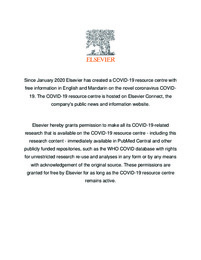Please use this identifier to cite or link to this item:
https://hdl.handle.net/11000/38156Full metadata record
| DC Field | Value | Language |
|---|---|---|
| dc.contributor.author | de Miguel Balsa, Eva | - |
| dc.contributor.author | Blasco-Ruso, Teresa | - |
| dc.contributor.author | Gómez Medrano, Norma | - |
| dc.contributor.author | Mirabet-Guijarro, María | - |
| dc.contributor.author | Martínez Pérez, Alba | - |
| dc.contributor.author | ALCALÁ LÓPEZ, ADORACIÓN | - |
| dc.contributor.other | Departamentos de la UMH::Medicina Clínica | es_ES |
| dc.date.accessioned | 2025-11-12T11:44:26Z | - |
| dc.date.available | 2025-11-12T11:44:26Z | - |
| dc.date.created | 2023-03 | - |
| dc.identifier.citation | Medicina Intensiva (English Edition. 2023 Oct;47(10):575-582. | es_ES |
| dc.identifier.issn | 2173-5727 | - |
| dc.identifier.uri | https://hdl.handle.net/11000/38156 | - |
| dc.description.abstract | 2pneumoniaAbstractObjective: To describe the characteristics of patients with acute respiratory distress syndrome(ARDS) due to bilateral COVID-19 pneumonia on invasive mechanical ventilation (IMV), and toanalyze the effect of prone position >24 h (prolonged) (PPP) compared to prone decubitus <24 h(PP).Design: A retrospective observational descriptive study was carried out, with uni- and bivariateanalyses.Setting: Department of Intensive Care Medicine. Hospital General Universitario de Elche (Elche,Alicante, Spain).Participants: Patients with SARS-CoV-2 pneumonia (2020−2021) on IMV due to moderate-severeARDS, ventilated in prone position (PP).Interventions: IMV. PP maneuvers.Main variables of interest: Sociodemographic characteristics, analgo-sedation, neuromuscularblockade (NMB), PD duration, ICU stay and mortality, days of IMV, non-infectious complications,healthcare associated infections.Results: Fifty-one patients required PP, and of these, 31 (69.78%) required PPP. No differenceswere observed in terms of patient characteristics (gender, age, comorbidities, initial severity,antiviral and antiinflammatory treatment received). Patients on PPP had poorer tolerance tosupine ventilation (61.29% vs 89.47%, p = 0.031), longer hospital stay (41 vs 30 days, p = 0.023),more days of IMV (32 vs 20 days, p = 0.032), longer duration of NMB (10.5 vs 3 days, p = 0.0002),as well as a higher percentage of episodes of orotracheal tube obstruction (48.39% vs 15%,p = 0.014). Conclusions: PPP was associated with greater resource use and complications in patients withmoderate-severe ARDS due to COVID-19. | es_ES |
| dc.description.abstract | Objetivo: Describir las características de los pacientes con síndrome de distrés respiratorioagudo (SDRA) por neumonía bilateral por COVID-19 en ventilación mecánica invasiva (VMI) yanalizar el efecto del decúbito prono prolongado >24 h (DPP) respecto al decúbito prono <24 h(DP).Dise˜no: Estudio observacional retrospectivo descriptivo. Análisis uni y bivariante.Ámbito: Servicio de Medicina Intensiva. Hospital General Universitario de Elche.Participantes: Pacientes con neumonía por SARS-CoV-2 (2020−21) en VMI por SDRA moderado-severo.Intervenciones: VMI. Maniobras de DP.Variables de interés principales:sociodemográficas; analgosedación; bloqueo neuromuscular(BNM); DP (duración), estancia y mortalidad en UCI, días de VMI; complicaciones no infecciosas;infecciones asociadas a la asistencia sanitaria (IAAS).Resultados: 51 pacientes precisaron DP y de ellos 31 (69,78%) requirieron DPP. No se encon-traron diferencias en las características iniciales de los pacientes, (sexo, edad, comorbilidades,gravedad inicial, o en el tratamiento antiviral y antiinflamatorio recibido). Los pacientes conDPP presentaron menor tolerancia a la ventilación en decúbito supino (61,29% vs 89,47%,p = 0,031), mayor estancia hospitalaria (30 vs 41 días, p = 0,023), más días de VMI (32 vs 20 días,p = 0,032), mayor duración del tratamiento con BNM (3 vs 10,5 días, p = 0,0002), así como unmayor porcentaje de episodios de obstrucción del tubo orotraqueal (15% vs 48,39%, p = 0,014).Conclusiones: El DPP se asoció con mayor uso de recursos y complicaciones en pacientes conSDRA moderado-severo por COVID-19. | es_ES |
| dc.format | application/pdf | es_ES |
| dc.format.extent | 9 | es_ES |
| dc.language.iso | eng | es_ES |
| dc.publisher | Elsevier | es_ES |
| dc.rights | info:eu-repo/semantics/openAccess | es_ES |
| dc.rights | Attribution-NonCommercial-NoDerivatives 4.0 Internacional | * |
| dc.rights.uri | http://creativecommons.org/licenses/by-nc-nd/4.0/ | * |
| dc.subject | Prone position | es_ES |
| dc.subject | Prolonged proneposition | es_ES |
| dc.subject | Invasive mechanicalventilation | es_ES |
| dc.subject | Acute respiratorydistress syndrome | es_ES |
| dc.subject | SARS-CoV-2pneumonia | es_ES |
| dc.subject | Decúbito prono | es_ES |
| dc.subject | Decúbito pronoprolongado | es_ES |
| dc.subject | Ventilación mecánicainvasiva | es_ES |
| dc.subject | Síndrome de distrésrespiratorio agudo | es_ES |
| dc.subject | Neumonía porSARS-CoV-2 | es_ES |
| dc.subject.other | CDU::6 - Ciencias aplicadas::61 - Medicina | es_ES |
| dc.title | Effect of the duration of prone position in ARDSpatients during the SARS-CoV-2 pandemic | es_ES |
| dc.type | info:eu-repo/semantics/article | es_ES |
| dc.relation.publisherversion | https://doi.org/10.1016/j.medine.2023.03.011 | es_ES |

View/Open:
Effect of the duration of prone position in ARDS patients during the SARS-CoV-2 pandemic.pdf
488,61 kB
Adobe PDF
Share:
.png)
